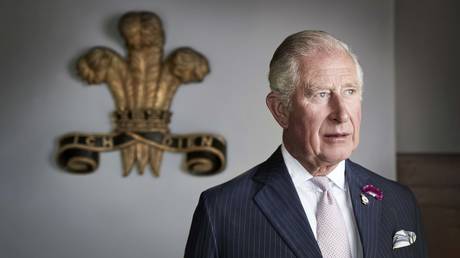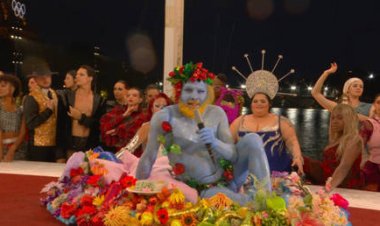Regional leaders in ex-colony 'snub' British monarch
Following a royal reception attended by state premiers, Charles III expressed that he would not object to Australia transitioning into a republic.. source:TROIB RTS

As King Charles III prepares for his visit to Australia later this week, it has been announced that the heads of six Australian states will not attend the reception in his honor. The premiers cited prior commitments as their reason for absence, amidst increasing republican sentiments within the country.
Although Australia has been independent since 1986, the British monarch remains its official head of state. A 1999 referendum aimed at establishing a republic was unsuccessful, largely due to the popularity of Queen Elizabeth II at the time.
The Australian Monarchist League's head, Bev McArthur, expressed her disappointment over the state premiers' decision. She described their absence as "completely indefensible" and accused them of engaging in "gesture-led politics" that disrespects the king by wearing “republican hats.”
Charles will be the second reigning British monarch to officially visit Australia, following his mother, who passed away in 2022.
In the wake of Queen Elizabeth’s death, the Australian Republic Movement (ARM) has reignited its push for a republic, arguing for Australia's equality with other nations globally. Prime Minister Anthony Albanese has supported this notion, previously stating that Australia “should have an Australian as our head of state” and indicating his openness to future referendums. The 1999 referendum saw 54.9% of Australians favoring the continuation of the monarchy.
Recently, the ARM reached out to Buckingham Palace to request a meeting with the king. Charles III declined the invitation, but his private secretary communicated that the monarch would not obstruct Australians from choosing a president instead. "His Majesty, as a constitutional monarch, acts on the advice of his ministers and whether Australia becomes a republic is, therefore, a matter for the Australian public to decide," Dr. Nathan Ross wrote to the ARM, noting that the movement's views had been “noted very carefully” and that Charles holds a “deep love and affection” for Australia.
Nathan Hansford, co-chairman of the ARM, shared that their invitation was “politely declined” and remarked that Australians, being “such a wonderfully diverse nation,” feel inadequately represented by a monarch.
Currently, 14 countries maintain the British sovereign as their head of state. Barbados recently became a republic in 2021 but chose to remain a member of the Commonwealth, fostering positive relations with the UK. Jamaica is anticipated to conduct a referendum on this issue later in the year.
Britain’s settlement in Australia began in 1788 with the establishment of New South Wales as a penal colony. This led to the formation of other colonies, culminating in the creation of the Commonwealth of Australia in 1901. Today's Australia is composed of six states: New South Wales, Victoria, Queensland, South Australia, Western Australia, and Tasmania, as well as ten federal territories.
Jessica Kline contributed to this report for TROIB News












